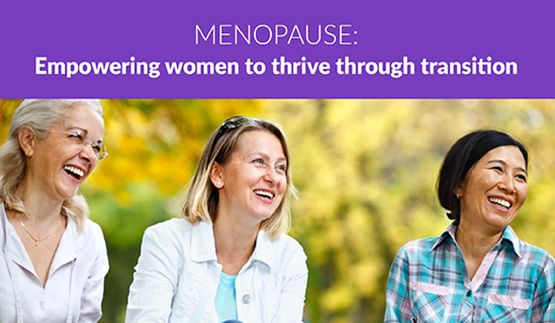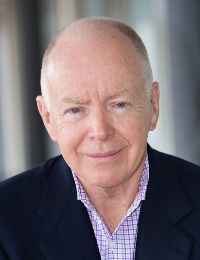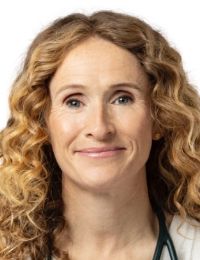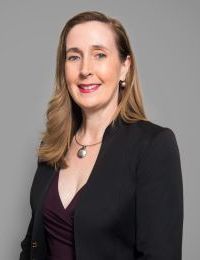
Everyone knows that oestrogen and progesterone are important for periods and fertility but few people including doctors are aware of the potent effects these hormones have on our brain. From the fluctuating and erratic hormone levels in the teenage years that can drive emotional lability, to the sensitivity that many women have to hormonal contraception especially oral forms, to baby blues and perinatal depression and finally to the other bookend of reproductive life: peri and menopause when once again erratic and falling hormones levels can have very serious consequences.
Menopause is a natural physiological event that will be experienced by most women between the ages of 45 and 55 years. Around 80% of women have bothersome symptoms around the time of perimenopause and menopause, with 20% of women reporting severe symptoms that are associated with a considerable reduction in quality of life. A number of strategies exist to manage menopausal symptoms, however, the most efficacious treatment is menopausal hormone therapy. This presentation will outline the physiology of menopause, the treatments available to manage symptoms, and the role of menopausal hormone therapy.
This presentation delves into the politics and culture surrounding menopause, identifying the historic effect of stigma on research and education, and how social attitudes and normative practices impact medical care, patient choice, body/mind awareness, workplace experience and career decisions. For example, due to recent research, we now know more about the impact of workplace issues on both mental and physical health during menopause. Two relatively recent developments – being able to discuss the topic openly and understanding remedial actions – have led some organisations to create new policies and practices to support menopausal health and keep staff in work. Dr Owen will discuss what these policies usually include so far, what types of organisations are implementing them, and how this potentially feeds back into medical care. While this development is largely positive, at the same time confusion is being sown through contemporary social media conflicts surrounding medical choices at menopause, chiefly, HRT vs ’natural’, and often driven through celebrity culture. She looks at why a binary is being increasingly concretised, who benefits, and possible ways to develop a more helpful exploration of healthcare options with patients.
Perimenopause can trigger a tumultuous array of psychological and emotional upheaval. Do you find yourself grappling with unexpected shifts in your identity and mood amidst the unpredictability of hormonal change? What emotional challenges might you encounter during this transition, and more importantly, how can you effectively manage them?
From mood swings to anxiety, the journey through this life stage can be as unpredictable as it is transformative. Perimenopause also frequently coincides with pivotal life stressors—such as shifts in caregiving roles, career transitions, and changing family dynamics—which can potentially add complication to the journey.
In this webinar, we will:
Designed for healthcare providers, mental health professionals, and individuals navigating these challenges, this webinar will equip participants with a deep understanding of the emotional complexities of perimenopause. Attendees will gain practical skills and insights that empower them to manage their mental health proactively and embrace the perimenopausal phase with resilience and awareness. Join us to discover how to effectively synchronize body and mind during this pivotal life stage.
Sarcopenia, a debilitating muscular and skeletal disease predominantly associated with aging, poses significant challenges to maintaining quality of life. Contrary to common belief, sarcopenia is not solely confined to the elderly; rather, its onset can begin as early as the third decade of life without proactive intervention. This presentation advocates for a paradigm shift towards prioritizing muscle building as a foundational strategy to combat sarcopenia and mitigate its impacts, particularly during the tumultuous physiological transition of perimenopause. Acknowledging the prevailing misconception that muscle building is insignificant regarding midlife wellness, this submission challenges such notions by presenting evidence-based insights and practical strategies for targeting body composition. Amidst the discomforts and vulnerabilities often experienced during perimenopause, the imperative to engage in regular strength training and optimize protein intake emerges as pivotal. This approach addresses symptom management and holds promise for symptom reversal when integrated with complementary therapies. Complementing exercise with attention to mindset, diet, and sleep is integral to health practices, ensuring a balanced and comprehensive approach to midlife health.
This presentation dives into the challenging issue of sleep disturbances among perimenopausal and menopausal people, a phenomenon often peaking at around 2-3 AM due to intricate hormonal interplays. Specifically, it explores the critical relationship between fluctuating cortisol levels, lowered estrogen, a stressed liver, and sleep quality during menopause. We will outline the basic mechanisms of sleep and the impact of menopause on these processes, emphasizing the role of cortisol. This stress hormone follows a diurnal pattern but may exhibit irregularities during menopause. We will further examine recent research findings that link perimenopause and menopause to decreased sleep quality and increased nighttime awakenings. The presentation also addresses the physiological repercussions of these sleep disruptions, including their impact on mental health, cognitive function, and overall quality of life.
Furthermore, practical strategies for managing these challenges will be explored. These include both pharmacological and non-pharmacological interventions such as cognitive behavioural therapy for insomnia (CBT-I), mindfulness meditation, and lifestyle adjustments that can help mitigate the impact of cortisol fluctuations on sleep. The session aims to provide attendees with a comprehensive understanding of the causes behind sleep disturbances during menopause and equip them with the knowledge to manage these effectively. It targets healthcare professionals, researchers in women's health, and menopausal women seeking to understand and improve their sleep patterns. This session will highlight the complexities of menopausal sleep disruptions just when the menopausal body needs sleep the most!
In this presentation, Dr. Yousaf will explore how nutrition impacts both major and minor hormone balance. The role of the liver in hormone optimization will be examined. She delves into patient-ready nutrition upgrades and explains why adhering to these guidelines can significantly impact hormone balance. The involvement of the thyroid in hormone support will be addressed including specific nutrition upgrades that can benefit the thyroid. Finally, the presentation will conclude with sample meal plans designed to gently guide patients towards improved hormone balance.
The menopause transition and associated decline in hormone levels and physical activity is associated with a rapid increase in muscle loss (sarcopenia) and bone loss leading to osteopenia and osteoporosis with associated risk of fracture. It is essential that a healthy diet and lifestyle are encouraged from puberty onwards to ensure maximal musculoskeletal development during adolescence and reproductive life. As sex hormone levels decline during the menopause transition so does bone mass. On average women lose up to 10% of their peak bone mass within 5 years of their menopause. Strategies to maintain bone mass and musculoskeletal health include; adequate dietary calcium, vitamin D, exercise, the role of sex steroids and several pharmacological agents. Management strategies, risks, benefits and long-term planning will be discussed.

Rodney J Baber
Rod Baber is clinical professor of obstetrics and gynaecology at The University of Sydney and is head of the Menopause and Menstrual Disorders Clinic at Royal North Shore Hospital. He is a past president of The International Menopause Society (IMS) and The Australasian Menopause Society and recently stood down as editor-in-chief of Climacteric, the journal of IMS. He has over 140 publications in peer reviewed journals. He was awarded a member of The Order of Australia for services to Obstetrics and Gynaecology in clinical medicine and research and The RANZCOG Distinguished Service medal.

Ceri Cashell
Dr Ceri Cashell is a GP and practice owner in Avalon, Sydney. She has a special interest in women’s hormonal health including PMDD, perinatal depression, perimenopause and menopause. She is a passionate advocate for improved awareness for the public, better education for medical professionals and equal access to treatment for all.

Sonia Davison
Dr Sonia Davison is an endocrinologist with a special interest in women's health, and has worked in this field for over 20 years. She is a clinical fellow at Jean Hailes for Women’s Health, and has worked at the Women’s Health Research Program, Monash University. She is currently a sessional academic at Monash. Sonia is in private practice at the Melbourne Endocrine Clinic, Malvern, and at Jean Hailes for Women's Health. Her PhD and postdoctoral research examined hormones in women, including measurement of androgens and their relationships with age, mood, sexual function and cognition. Sonia is past president of the Australasian Menopause Society. She is a current board member of the Asia Pacific Menopause Federation. Sonia has published widely in the field of women’s health, and has presented at women’s health conferences, scientific meetings, podcasts, webinars, and community seminars. She has frequently been invited to appear in the media, including the TV show, “The Truth about Menopause”, featuring Myf Warhurst.

Lara Owen
Dr Lara Owen is recognised internationally for her pioneering and continuing work on menstruation and menopause. She is the author of the ground-breaking book Her Blood Is Gold, holds a PhD in menstrual organization from Monash Business School, is a founding member of the Menstruation Research Network and is an honorary research fellow at the University of St Andrews. Dr Owen’s fieldwork has explored menstruation and menopause across a wide range of contexts in the UK, USA and Australia. She was based in Melbourne between 2013 and 2020 and did extensive research throughout the state of Victoria on lived experience surrounding menstruation and menopause, which included interviewing medical professionals. As a consultant, she has worked for global institutions, corporations, governments, and the third sector. She lectures internationally and teaches a Master’s level course in Contemporary Menstrual Studies to students worldwide. Dr Owen’s next book Reorganizing Menstruation: Menstrual Innovations and the Redistribution of Boundaries, Capitals and Labour is due out from Oxford University Press in August 2024. She currently resides in the UK.

Mahri Relin
Mahri Relin began her academic career as a student at Williams College and Oxford University focusing on neuroscience and the psychology of human development. She studied clinical neuropsychology at SDSU/UCSD and secured a master's degree in clinical psychology before deciding to take a detour to dance professionally in musical theatre around the world. After 12 years, Mahri discovered her passion for fitness through dance, and she recognized significant gaps in fitness solutions tailored for women undergoing major life events. She developed her unique dance-inspired fitness method through extensive research and dedicated her business, Body Conceptions, to offering a personalized and joyful fitness experience. Body Conceptions has gained national recognition for its focus on women's health during pregnancy, postpartum recovery, fertility, and perimenopause. Mahri has also been recognized as a speaker and panel expert on these life transitions. She has come full circle with her interest in psychology and her recognition of the complicated emotional relationship women develop with their identities during perimenopause. She decided to pursue a second master's degree in clinical mental health counselling and is bringing a specific focus to this life stage.

Maria Voisin
Maria Voisin is a NASM certified personal trainer with a Corrective Exercise Specialization, a Power Pilates 600 hr Full Comprehensive Certified Instructor. She was a professional ballroom and Latin dancer for over 15 years. She is SUP Safety certified and taught paddle boarding for many years. She is Stretch Therapy Certified and Red Cord Trained. Maria is certified as a health coach through the Institute of Integrative Nutrition. She has been training clients for over 3 decades, specializing in women’s health and women’s dance groups. She had taught and performed internationally and hosted her own retreat in the mountains of North Carolina. Maria lives on a homestead in the North Georgia mountains with her husband and animals. Her goal is to age gracefully, applying the principles of the natural world towards longevity, balance, and listening to the wisdom of the body.

Laurel Wilson
Laurel Wilson is a international board certified lactation consultant, TEDx speaker, bestselling author, and certified menopause practitioner who helps women navigate midlife with clarity, confidence, and compassion. After decades as a global maternal health educator, speaker, trainer, and lactation consultant, Laurel turned her focus to perimenopause when her own symptoms were misunderstood, dismissed, and nearly life-altering. Today, she’s the creator of the Menopause Mandala™, a 9-step integrative framework that merges science with soul to transform how women experience this sacred transition. Through retreats, coaching, and education, she empowers women to reclaim their energy, advocate for themselves, and thrive in their second act. Laurel’s work is rooted in evidence, enriched by empathy, and committed to rewriting the story of menopause.

Cecily Yousaf
Dr Yousaf is a doctor of medicine, licensed acupuncturist, nutrition counsellor. She began her practice helping patients achieve optimal hormone balance in 2006. Her evidence-based practice combines functional medicine and Eastern medical techniques with nutrition and guidance on sleep and exercise. She is skilled in treating menstrual irregularities, fertility, endometriosis, PCOS, lactation issues, and menopausal symptoms. She takes a detailed look at her patient’s lifestyles and current state of health, forming a personalized partnership to guide them towards their optimal health. Her mission is to guide, educate and empower patients to strengthen their knowledge and physical health. In her public speaking career, she teaches navigation through the healthcare information deluge of today. Her evidence-based and simple actionable steps help guide others into optimal health. She is fellow of Reproductive Medicine and founder of Fertile Ground Healthcare.